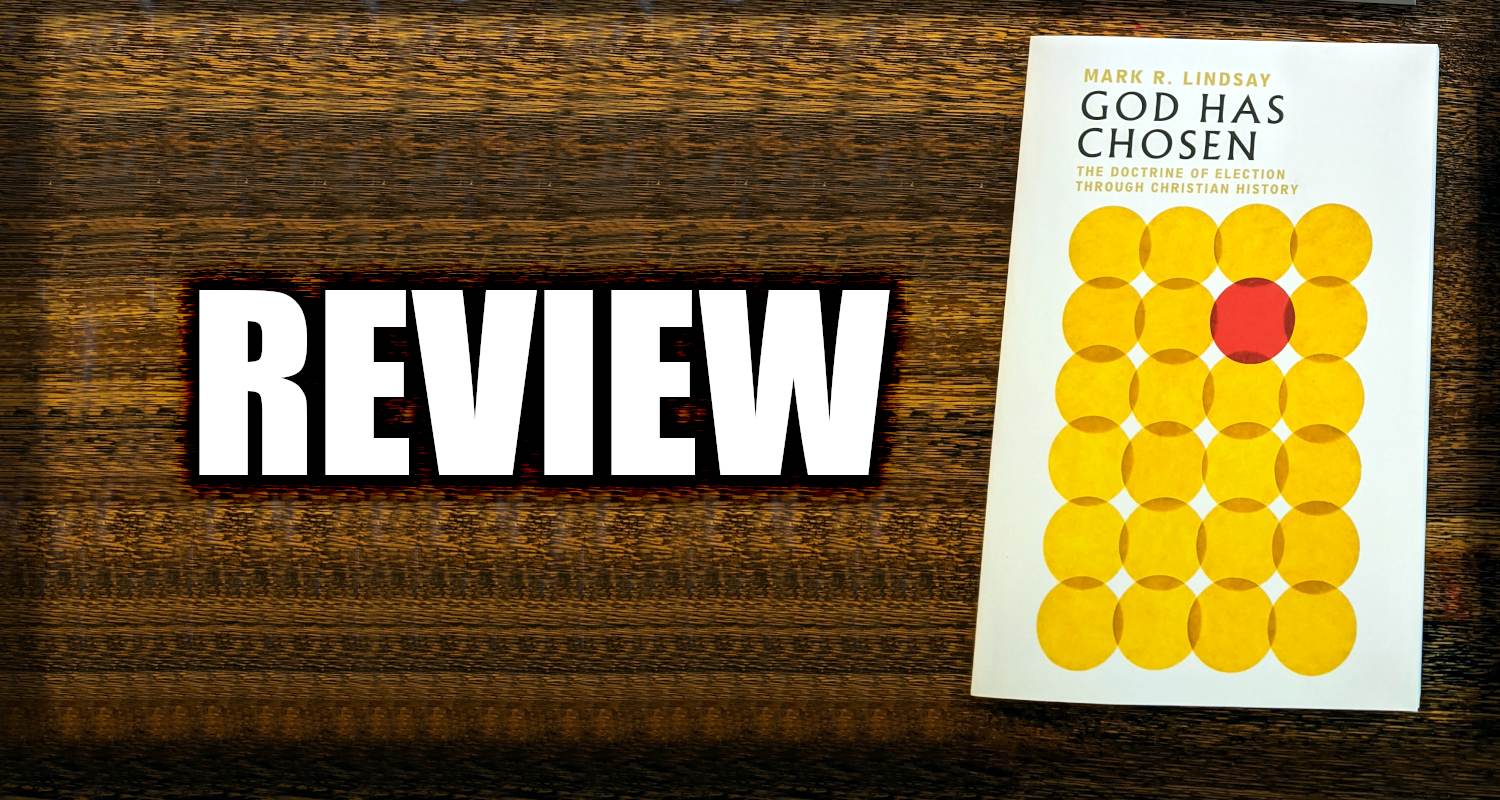
Dr. Mark A. Lindsay's new book God Has Chosen: The Doctrine of Election Through Christian History (2020) published by IVP Academic is an engaging history of the doctrine of election that is easy to read and is not laden with technical jargon. Lindsay does a great job of summarizing the complicated doctrine of election that has developed substantially over thousands of years, and he does so in under 250 pages. I especially recommend this book for pastors in non-reformed denominations. I also have to admit that I've been impressed by the Barthians (including Lindsay) writing books in Australia and New Zealand.
I was most interested in Lindsay's chapters on Karl Barth's doctrine of election and his summary of recent developments of the doctrine election (especially post-Auschwitz). I admit, I read the last chapters first! Lindsay does a good job of showing the shift from an either/or doctrine of election found in the decretum absolutum of John Calvin's doctrine of election to the both/and of the election of Jesus Christ in Karl Barth's doctrine of election. Calvinists oftentimes have a fanatical attachment to the double predestination and are reluctant to accept Barth's reconstruction of Calvin. Others have not embraced Barth's thesis that the doctrine of election is the sum of the gospel because Barth's exposition is buried deep within his dense Church Dogmatics Vol II/2 which is after three other dense part-volumes.
Lindsay's discussion of sorting of Jews in Auschwitz illuminates the flaws in Calvin's doctrine of election, especially when Calvin is contrasted to Karl Barth's reconstruction of Calvin. Perhaps the horror of Auschwitz may cause a Calvinist to rethink their double predestination and reconsider Karl Barth's of Jesus alone. Lindsay includes a fascinating discussion of Markus Barth's (son of Karl Barth) objection to using Auschwitz to inform our doctrine of election because Markus Barth argues that this is resorting to an unacceptable natural revelation. It was a fascinating point that is a double-edged sword because natural revelation should be rejected but if natural revelation is so severely avoided that a blind-eye is turned to Auschwitz then an equally grotesque error has occurred.
Lindsay also includes a helpful summary of the debate between Bruce McCormack and George Hunsinger on whether election precedes the trinity in Barth's theology. I wish he had engaged with George Hunsinger's Reading Barth With Charity. Nevertheless, I enjoyed Lindsay's concise summary of the Barth Wars overall and recommend his summary of it.
One point of criticism is Lindsay's suggestion that Pierre Murray's 1936 Geneva paper proposal was the origin of Karl Barth's reconstruction of Calvin's doctrine of election. Maybe he is right, but it is a bit too nail on the head. Two people may have the same revolutionary idea at the same time, like the independent and simultaneous discovery of calculus by Leibnitz and Newton, because of an opportune time to discover it. Barth's reconstruction of Calvin may have been inevitable, and others may have seen it as well, but Barth was the one that changed the world's mind about it. Also, I wish he had discussed how Barth's revision of election relates to individuals (other than Jesus), and had incorporated Barth's doctrine of providence in CD III/3 and further related discussions from CD IV.
My final verdict is that Mark R. Lindsay's God Has Chosen: The Doctrine of Election Through Christian History is not a dry book on dusty and tired theology—instead it is a page-turner that is hard to put down and full of gold nuggets that will get you excited about the doctrine of election. It is not too late to order it as a Christmas gift or for others or for yourself.
Disclosure of Material Connection: I received this book free from IVP Academic Press. I was not required to write a positive review. The opinions I have expressed are my own. I am disclosing this in accordance with the Federal Trade Commission’s 16 CFR, Part 255 : "Guides Concerning the Use of Endorsements and Testimonials in Advertising."



April 19th, 2021 - 23:14
appreciate this review, thank you
July 6th, 2021 - 12:31
Thanks Wyatt helpful review